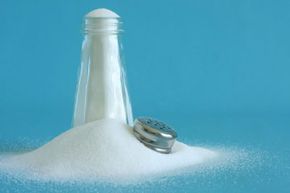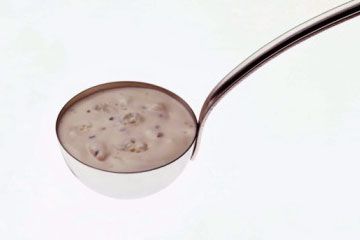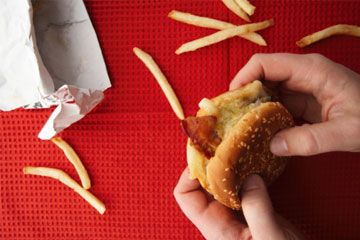In theory, low-sodium salt seems like a great idea. It promises all the flavorful goodness of salt without the sodium and could be very helpful for those interested in lowering their sodium intake.
The problem is that you can't have salt without sodium. It'd be like taking the hydrogen out of H2O. It just doesn't make a whole lot of sense. Salt is called sodium chloride for a reason: It's 40 percent sodium and 60 percent chlorine, and cutting out most of the sodium makes it, well, something that isn't salt. In fact, according to the U.S. Food and Drug Administration (FDA), low-sodium salt isn't even food, as food-grade salt is required to consist of at least 97.5 percent sodium chloride.
Advertisement
This doesn't mean, however, that low-sodium salt can't be consumed, or that it won't help you stick to a low-sodium diet. But before we pore over the perks and pitfalls of low-sodium salt, we need to shake out the reason such a product is needed in the first place.
Salt is a good thing, but not in massive or even moderate quantities. Young, healthy people shouldn't have more than 2,300 milligrams of salt per day, which is equal to approximately one teaspoon. Anyone over the age of 40, people with high blood pressure and those of African descent shouldn't consume more than 1,500 milligrams per day. A recent report in The New England Journal of Medicine claims the dangers that come from consuming an extra half teaspoon of salt per day is equivalent to the health risks associated with obesity, smoking and high cholesterol.
You also need to remember that we're talking about salt, not sodium. Nutritional information breakdowns usually only provide foods' sodium levels, and because sodium makes up only 40 percent of salt, you have to multiply a product's sodium content by 2.5 to figure out how much salt is in each serving. So, for example, a single-serve, 1.5-ounce bag of Lay's Salt and Vinegar potato chips contains 580 milligrams of sodium, meaning it really holds 1,450 milligrams of salt. Of course, if you were to replace the salt Lay's uses with a low-sodium brand, that number would be significantly lower. But since you can't take away the salt on processed potato chips (or any other food), it's not surprising that people are willing to sprinkle a non-food additive onto their homemade provisions to lessen their sodium intake.
But if low-sodium salt isn't food, what is it? Low-sodium salts typically replace some of the sodium in sodium chloride with potassium, so they're a mixture of sodium and potassium chloride. Potassium chloride does have a salt-like taste, but there's a reason we've been sprinkling our steaks exclusively with sodium-infused crystals for thousands of years -- potassium chloride can kill you at high enough doses.
Potassium chloride is the principle positive ion in our body's cells and can help lower blood pressure. Unfortunately, it can also stop your heart. In fact, potassium chloride, while safe in small dosages, is the toxin of choice for many states' lethal injection procedures, so it's definitely not something you want to ingest in excess. Most low-sodium salts advise you to consult a doctor before consuming.
Advertisement


